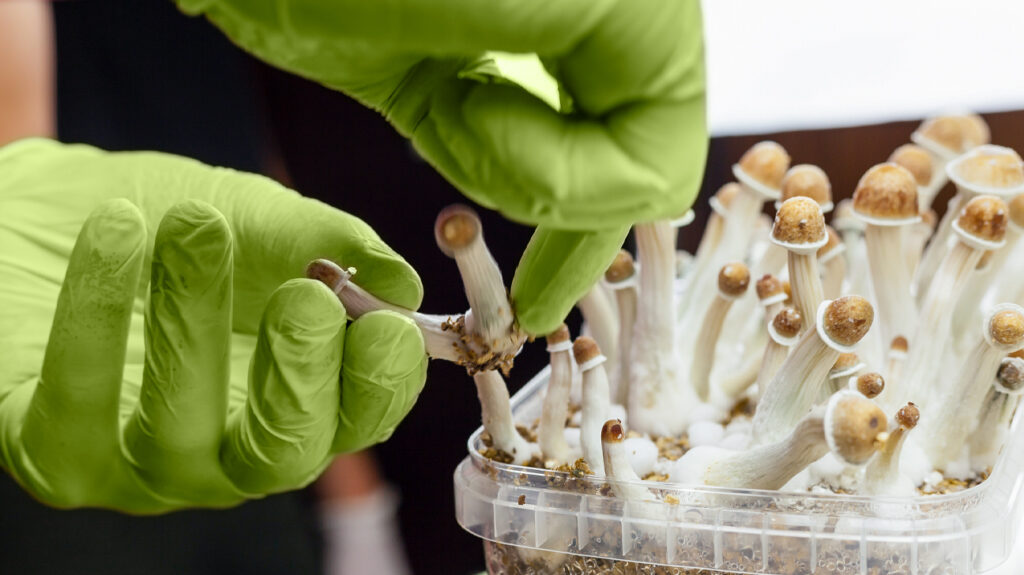New antidepressants are ketamine-like drugs that show a high therapeutic response. A 2014 meta-analysis in Psychopharmacology reports that roughly 0.5 milligrams per kilogram of ketamine effectively reduced depressive symptoms. These effects also lasted 2–3 days after treatment. However, there are some drawbacks. While currently approved by the Food and Drug Administration (FDA), there are some short-term side effects to consider when using ketamine, such as feeling strange or bizarre, numbness, and difficulties speaking. Ketamine has a high liability for addiction and may have a large potential for abuse. A 2018 study in Neurobiology of Stress found that repeated low-dose ketamine treatments for treatment-resistant depression resulted in cognitive impairments and potential for abuse. To avoid people abusing their medication, alternative treatments to support psychotherapy are needed — enter psilocybin. There is growing evidence of psilocybin’s antidepressant properties. A study in the Journal of Psychopharmacology demonstrateda single psilocybin dose that produced an antidepressant and anxiolytic response in cancer patients, which lasted for 5 years. Compared with ketamine, psilocybin has lower addictive properties, which would be beneficial as a potential add-on for current treatments. However, clinical research evaluating this substance in combination therapies is limited. Recently, researchers at Johns Hopkins University published an article contributing to the research investigating the effectiveness of psilocybin-assisted therapy for depression. “These data expand the findings of previous studies involving patients with cancer and depression, as well as patients with treatment-resistant depression, by suggesting that psilocybin may be effective in the much larger population of MDD,” write the study authors. Several limitations exist that could challenge the usefulness of the study results. The research had insufficient minority representation, as recruitment leaned towards non-Hispanic whites. This is important because while white people typically report more cases, the American Psychiatric Association note that Black and Hispanic Americans are more likely to experience depression for more extended periods. In response, the researchers acknowledge the need for future studies to validate this proof of concept in more representative populations. The study also fails to address the long-term effects of psilocybin treatment. Unlike the investigation on cancer patients, which had a 5-year follow up, the current research followed up after only 1 month.There were also variables in the study design that could question psilocybin’s effectiveness as an antidepressant drug. One comes from a lack of a placebo group. Placebos are essential in determining whether a person truly benefitted from the drug and not from outside factors. For this reason, the safety of using psilocybin remains unknown. (Credits: www.medicalnewstoday.com)


